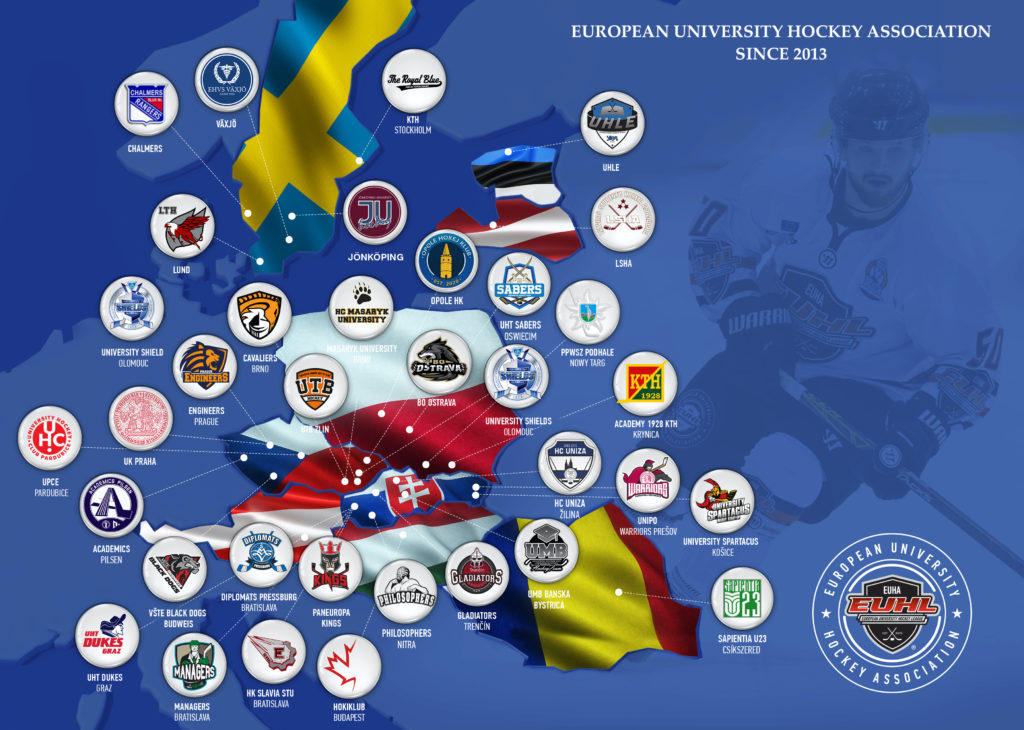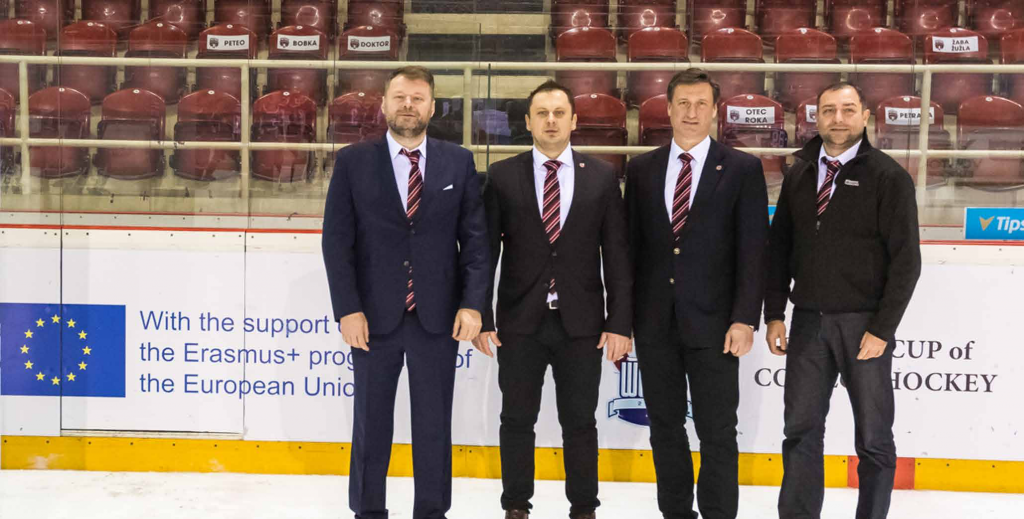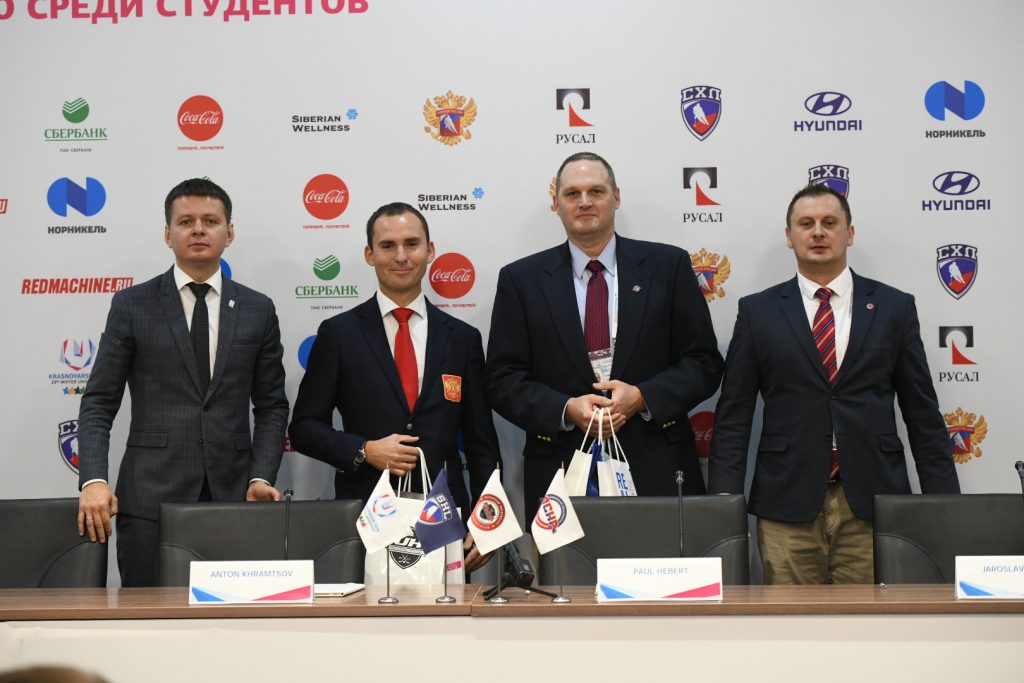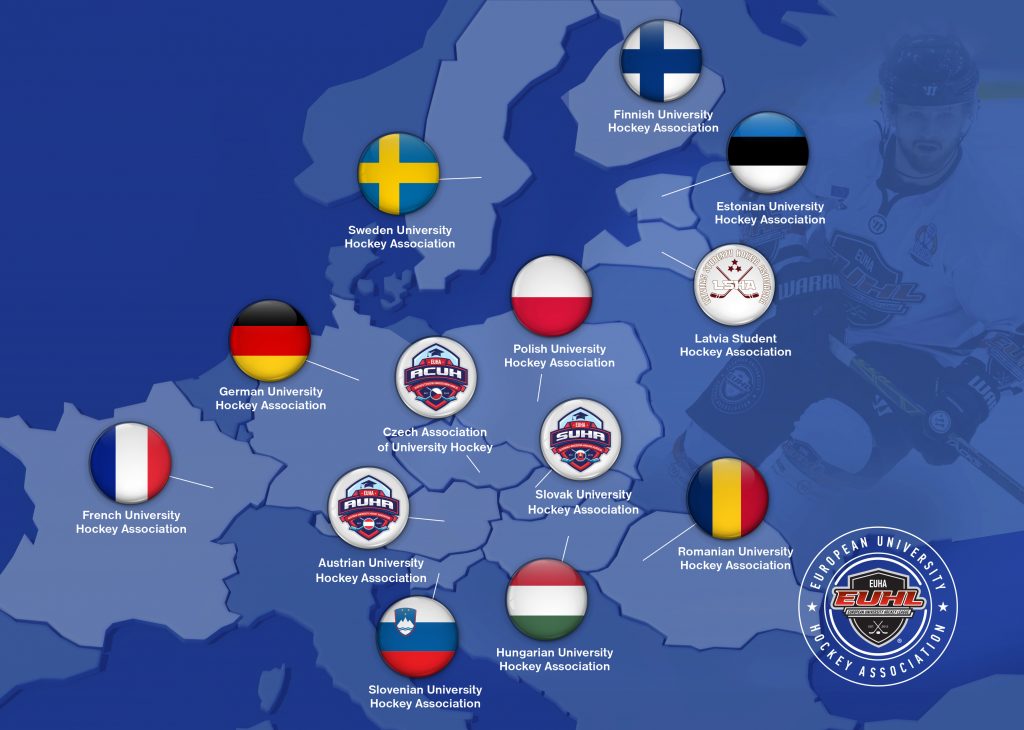ABOUT US
The European University Hockey Association (EUHA) is a non-governmental and apolitical organization actively supporting and promoting sport among young people with focus on development and promotion of sport activities, specifically ice hockey, among university students. Some of the organization´s objectives include improvement of physical and mental health of young people and overall development and promotion of physical culture. The main and regular outcome of EUHA activities is organization of a regular competition called the European University Hockey League (EUHL) that creates unique opportunities for young students – athletes to develop their dual careers and allowing them to be successful in both, sport and education.
The EUHA founded the league in November 2013 as the first regular international university hockey league in Europe. Since its foundation, more than 34 university teams from 9 Member States of the European Union (Slovakia, Czechia, Austria, Poland, Hungary, Sweden, Estonia, Latvia and Romania) participated in the EUHL.
 Vision of the EUHL is to build a strong all-European league with larger number of participating countries and teams (Austria, Germany, Sweden, Finland, France, Belgium, Netherlands, Slovenia, Latvia, Estonia, etc.) divided into divisions within the area of max. 700 kilometers in order to decrease travel and other costs. Horizontal expansion will always be preceded by vertical expansion, in the form of intense support of students – athletes´ dual career. In this context, the dual career embodies functioning symbiosis of professional sport and quality education in various fields of study.
Vision of the EUHL is to build a strong all-European league with larger number of participating countries and teams (Austria, Germany, Sweden, Finland, France, Belgium, Netherlands, Slovenia, Latvia, Estonia, etc.) divided into divisions within the area of max. 700 kilometers in order to decrease travel and other costs. Horizontal expansion will always be preceded by vertical expansion, in the form of intense support of students – athletes´ dual career. In this context, the dual career embodies functioning symbiosis of professional sport and quality education in various fields of study.
Another objective of the EUHA lies in the support and development of education for members of the Association. The EUHA aims to contribute to overcoming inter-cultural, informational and communication barriers. Moreover, one if its goals is to cooperate with state and non-governmental institutions of the EU Member States and actively assist with activities of civic associations, foundations and other entities with similar goals. The EUHA still plans to build infrastructure of European university hockey through its partner – daughter associations. A good example of existing partner associations is a number of existing daughter associations SUHA (Slovak University Hockey Association), ACUH (Association of Czech University Hockey) and LSHA (Latvian Student Hockey Association) that are responsible for creating new university teams, obtaining government aid/funding and assisting with participation of their university teams in regular international university hockey league – EUHL. With increasing numbers of university teams, the EUHA and its partner associations will seek other opportunities in creating new divisions within the EUHL. The EUHA has already received a number of Slovak national grants and 1 project funding within the Erasmus programme (European Commission) for its project the EUHL.
„The main goal of this cooperation is to exchange experiences and strengthen sport diplomacy around the world.“
The EUHA still plans to build infrastructure of European university hockey through its daughter associations. A good example of existing partner associations is a number of existing daughter associations SUHA (Slovak University Hockey Association), ACUH (Association of Czech University Hockey) and LSHA (Latvian Student Hockey Association) that are responsible for creating new university teams, obtaining government aid/funding and assisting with participation of their university teams in regular international university hockey league – EUHL. With increasing numbers of university teams, the EUHA and its partner associations will seek other opportunities in creating new divisions within the EUHL.
After all, sport diplomacy and the opportunity to become a part of international university hockey community is another motivational factor for many students – athletes in their dual careers. International cooperation and competitiveness in sport between universities help promote the universities themselves and provide them with opportunities to cooperate in science, research and further collaborations.
The EUHL is on the right path to create a new sport culture and infrastructure among the EU universities





